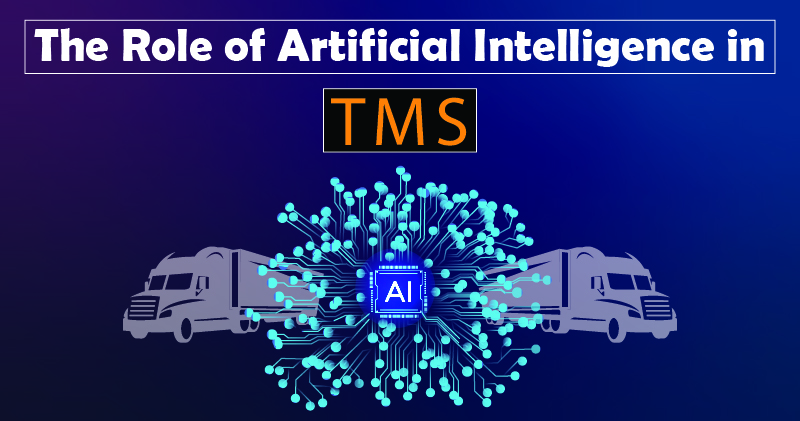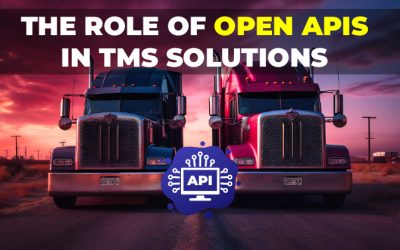
Transportation is crucial in efficiently moving goods and people in today’s fast-paced world. With the advent of technology, transportation management systems (TMS) have emerged as vital tools for optimizing logistics operations. In recent years, integrating artificial intelligence (AI) into TMS has revolutionized how transportation networks are managed. This article explores the role of AI in transportation management systems and its impact on streamlining operations.
Understanding Transportation Management Systems (TMS)
Transportation Management Systems (TMS) are software applications that help businesses manage their transportation operations efficiently. These systems are designed to streamline processes, improve visibility, and enhance decision-making in the transportation industry.
At its core, a TMS helps businesses plan, execute, and optimize the movement of goods from one location to another. It encompasses various activities, including order management, route planning, carrier selection, freight consolidation, shipment tracking, and freight payment. TMS solutions are typically used by shippers, carriers, and logistics service providers to manage their transportation operations effectively.
The primary goal of a TMS is to ensure that goods are delivered to the right place, at the right time, and in the most cost-effective manner. By automating and optimizing transportation processes, TMS solutions help businesses achieve better operational efficiency, reduce transportation costs, and improve customer satisfaction.
One of the key advantages of using a TMS is the ability to streamline the entire transportation workflow. With a TMS, businesses can automate manual processes such as order entry, carrier selection, and load tendering. This automation eliminates the need for manual intervention and reduces the chances of errors or delays. By centralizing transportation data and providing real-time visibility into shipments, TMS solutions enable businesses to make informed decisions and respond quickly to any disruptions or changes in the supply chain.
The Rise of Artificial Intelligence in TMS
Artificial intelligence has emerged as a game-changer in the field of transportation management. With its ability to analyze vast amounts of data, AI enhances decision-making processes and automates complex tasks. Here are some key areas where AI is making a significant impact in TMS:
Route Optimization: AI algorithms analyze historical and real-time data to determine the most efficient routes for transportation. Factors like traffic conditions, weather forecasts, and delivery time windows are considered to minimize fuel consumption, reduce transit times, and enhance overall supply chain efficiency.
Demand Forecasting: AI-powered TMS systems leverage machine learning techniques to predict demand patterns based on historical data, seasonal trends, and external factors. This enables businesses to optimize inventory levels, plan for peak periods, and minimize stockouts, improving customer satisfaction and cost savings.
Smart Load Matching: AI algorithms match available freight with the most suitable carriers based on capacity, location, and delivery requirements. This results in better asset utilization reduced empty miles, and improved operational efficiency.
Predictive Maintenance: By leveraging AI, TMS systems can monitor the health of vehicles and equipment in real time. Predictive maintenance algorithms analyze sensor data, identify potential issues, and schedule maintenance proactively. This minimizes downtime, extends the lifespan of assets, and reduces maintenance costs.
Real-time Tracking and Visibility: AI-powered TMS platforms provide real-time tracking and shipment visibility. With the integration of Internet of Things (IoT) devices and sensors, businesses can monitor the location, temperature, and condition of goods throughout transportation. This enables proactive problem-solving, improves delivery accuracy, and enhances customer communication.
Integrating AI into Business
Integrating artificial intelligence into transportation management systems has revolutionized the logistics industry. AI-powered TMS platforms enable businesses to optimize routes, forecast demand, match loads efficiently, perform predictive maintenance, and provide real-time tracking and visibility. By leveraging these capabilities, companies can streamline operations, reduce costs, and enhance customer satisfaction.
To stay competitive in today’s rapidly evolving transportation landscape, businesses should embrace TMS-Digital leverage, combining AI with modern technologies like IoT, cloud computing, and big data analytics. This holistic approach enables companies to gain actionable insights, make data-driven decisions, and achieve operational excellence.
Incorporating AI into transportation management systems enhances efficiency and contributes to sustainability efforts by reducing fuel consumption, minimizing emissions, and optimizing resource allocation. The role of AI in TMS is set to expand further as technology continues to advance, opening up new possibilities for innovation and improved supply chain management.
Leverage TMS-Digital for Streamlining Business
To harness the full potential of AI in transportation management systems, businesses should consider partnering with technology providers specializing in TMS solutions such as TMS-Digital.
TMS-Digital offers cutting-edge TMS solutions that leverage AI capabilities to streamline transportation workflows and enhance decision-making. Their expertise in the field provides businesses with the tools and insights necessary to efficiently manage their transportation operations in a fast-paced and ever-changing environment.
TMS-Digital’s TMS solution excels in route optimization and load consolidation, maximizing resource utilization, and minimizing transportation costs. By analyzing vast amounts of data, including historical shipping routes, carrier performance, and customer preferences, their AI algorithms identify the most efficient routes and carriers for each shipment. This optimization reduces fuel consumption, lowers emissions, and contributes to a more sustainable transportation ecosystem.
Ready to streamline your transportation operations and unlock the power of AI? Partner with TMS-Digital today and experience the benefits of their cutting-edge TMS solution. Contact us now to schedule a consultation and discover how TMS-Digital can revolutionize transportation management.








